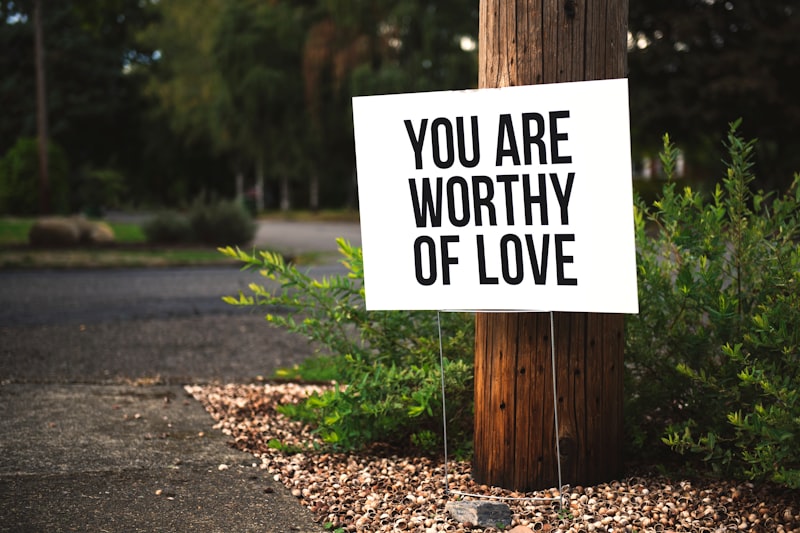Have you ever felt like life is moving at lightning speed, and you’re just trying to keep up? In the hustle and bustle of daily routines, it’s easy to lose touch with ourselves. That’s where reflection practices come into play – they’re like a pause button for your mind, allowing you to hit rewind and gain valuable insights into your thoughts, emotions, and actions.
Reflection is more than just thinking back on what happened during the day. It’s a deliberate and mindful process of self-examination that fosters self-awareness – the ability to tune into your own thoughts and feelings with clarity. By setting aside a few minutes each day for reflection, you can cultivate a deeper understanding of yourself and your experiences.
Imagine your mind is a mirror, reflecting back everything that happens to you. When you take the time to polish that mirror through reflection, the image becomes clearer and more detailed. You start to notice patterns in your behavior, triggers that set off certain emotions, and even underlying beliefs that shape your decisions.
One powerful reflection practice is journaling. Grab a notebook and jot down your thoughts at the end of each day. Write about what went well, what challenges you faced, and how you responded to them. This simple act of writing helps to externalize your thoughts and gives you a bird’s-eye view of your inner world.
Another effective method is mindfulness meditation. Find a quiet space, sit comfortably, and focus on your breath. As thoughts arise, observe them without judgment and gently guide your attention back to your breath. This practice not only calms the mind but also enhances your ability to observe your thoughts and emotions without getting caught up in them.
Self-awareness is like a muscle – the more you exercise it, the stronger it becomes. Through consistent reflection practices, you develop a heightened sense of self-understanding and emotional intelligence. You become more attuned to what truly matters to you, paving the way for personal growth and fulfillment.
In a world that’s constantly pulling for your attention, taking time for self-reflection is a radical act of self-care. It’s a gift you give yourself – the opportunity to pause, reflect, and grow. Start small, stay consistent, and watch as your self-awareness blossoms like a flower opening to the sun.
Unlocking Your Inner World: The Power of Daily Reflection
Ever wondered how some people seem to navigate life’s challenges with calm and clarity? It might not just be luck or natural disposition. Daily reflection, a practice often overlooked in today’s fast-paced world, holds incredible power to transform how we perceive and react to the world around us.

What exactly is daily reflection? It’s more than just replaying the events of the day. It’s about taking a conscious pause, a moment to step back and introspect. Imagine it as polishing a mirror—you’re clearing away the smudges to see yourself and your life more clearly.
This simple yet profound practice offers numerous benefits. First, it enhances self-awareness. By reflecting on our actions, thoughts, and emotions, we gain a deeper understanding of ourselves. We start noticing patterns—what triggers our stress, what brings us joy—empowering us to make conscious choices rather than reacting impulsively.
Moreover, daily reflection fosters personal growth. Just like athletes review game tapes to improve performance, reflecting on our daily experiences allows us to learn and grow. We celebrate our successes, learn from our mistakes, and identify areas where we can do better tomorrow.
Not convinced yet? Consider this: daily reflection is a form of mental hygiene. In today’s information-saturated world, our minds can easily become cluttered. Taking time to reflect is like decluttering your mental space—it reduces stress, enhances creativity, and improves decision-making.
In essence, daily reflection isn’t a luxury; it’s a necessity for anyone seeking to live intentionally and authentically. It’s about reclaiming your inner world from distractions and noise, allowing you to navigate life with greater purpose and clarity.
Ready to unlock the power of daily reflection? Start small—find a quiet moment each day, journal your thoughts, or simply sit in silence. You’ll be amazed at how this simple practice can transform your life.
From Insight to Action: How Reflection Fuels Personal Growth
Think of reflection as a mental workout for your soul. Just like how athletes review game tapes to spot errors and enhance their performance, reflecting on your own life allows you to pinpoint what’s working well and what needs adjustment. It’s like having a personal coach guiding you through the ups and downs of life.
But what exactly does reflection entail? It’s more than just thinking about past events. It’s about digging deeper to uncover the underlying lessons and insights that those events hold. It’s about asking yourself tough questions: What did I learn from this experience? How did I handle challenges? What could I have done differently? These questions aren’t meant to dwell on the past but to extract wisdom that can propel you forward.
Imagine your mind as a garden. Reflection is like tending to that garden—pulling out weeds of self-doubt, watering the seeds of new ideas, and allowing the sunlight of awareness to nourish your growth. It’s a deliberate act of mindfulness that cultivates self-awareness and emotional intelligence, traits that are crucial for personal development.
When you reflect regularly, you start to notice patterns in your behavior and reactions. You become more attuned to your strengths and weaknesses. This self-awareness isn’t just empowering—it’s liberating. You gain clarity on your goals and values, making it easier to align your actions with what truly matters to you.
Moreover, reflection is not a solitary journey. Sharing your reflections with others can deepen your understanding and foster connections. It opens the door to valuable feedback and different perspectives, enriching your learning experience.
In essence, reflection is the bridge from insight to action. It transforms knowledge into practical wisdom. It empowers you to make informed decisions and steer your life in a direction that resonates with your aspirations. So, next time you find yourself at a crossroads, take a moment to reflect. You might just uncover the key that unlocks your next level of personal growth.
Mirror of the Mind: Harnessing Self-Awareness Through Daily Reflection
Self-awareness isn’t just a buzzword; it’s a powerful tool we can harness through daily reflection. Imagine it like polishing a mirror each day – the clearer it becomes, the better you can see yourself and your surroundings. This practice isn’t reserved for monks on mountaintops; it’s something anyone can integrate into their daily routine.
So, how does one start this journey of self-awareness? It begins with taking a moment each day to pause and reflect. Maybe it’s journaling before bed, pondering over a cup of coffee in the morning, or simply taking a walk to unwind after work. The key is creating a space for introspection, where you can honestly evaluate your thoughts and feelings.
Through reflection, you begin to notice patterns in your behavior. Maybe you realize that you tend to react impulsively in certain situations, or perhaps you uncover underlying motivations behind your actions. These insights are like puzzle pieces that help you understand why you do what you do, empowering you to make conscious choices.
Moreover, self-awareness isn’t just about understanding yourself; it’s also about improving yourself. When you’re aware of your strengths and weaknesses, you can play to your strengths and work on areas that need development. It’s like having a personal GPS – you know where you are and where you want to go.
In today’s fast-paced world, it’s easy to go through the motions without truly understanding ourselves. However, by incorporating daily reflection into our lives, we can cultivate a deeper connection with our thoughts, emotions, and actions. It’s about being present in our own lives, rather than just letting life happen to us.
The Science Behind Self-Reflection: How It Rewires Your Brain
Self-reflection isn’t just about pondering over past actions; it’s a powerful tool that activates specific areas of your brain responsible for introspection and self-awareness. When you engage in self-reflection, whether it’s through journaling, meditation, or quiet contemplation, your brain lights up in a unique way. Studies have shown that during these moments, the default mode network (DMN) in your brain becomes more active. This network is crucial for integrating information from various brain regions, forming a coherent sense of self, and understanding others’ perspectives.

Think of your brain as a busy city with highways connecting different neighborhoods. When you reflect, it’s like taking a scenic route through these neighborhoods, allowing you to see connections and patterns you might have missed while speeding along the highways of daily life. This process helps strengthen neural pathways related to self-regulation, emotional processing, and decision-making.
Moreover, self-reflection isn’t just beneficial for understanding past experiences; it also plays a significant role in shaping your future behaviors. By reflecting on your actions and their outcomes, you reinforce positive behaviors and learn from mistakes. This active engagement with your experiences enhances your ability to adapt and grow, much like a gardener pruning a tree to encourage healthy growth.
Interestingly, neuroplasticity, the brain’s ability to reorganize itself by forming new neural connections, is closely tied to self-reflection. When you consistently engage in reflective practices, you stimulate neuroplasticity, making it easier for your brain to change and adapt over time. This is akin to strengthening muscles through regular exercise; the more you reflect, the more resilient and adaptable your brain becomes.
Mastering Self-Discovery: Tools and Techniques for Effective Reflection

Ever wondered how some people seem to have a deep understanding of themselves? They’re not born with it; they’ve mastered the art of self-discovery through effective reflection. Reflecting on your thoughts, emotions, and actions can lead to profound insights and personal growth. Let’s dive into some powerful tools and techniques that can help you on this journey of self-discovery.
One of the most accessible tools for self-reflection is journaling. It’s like having a conversation with yourself on paper. By jotting down your thoughts and feelings, you can track patterns, identify triggers, and gain clarity on what truly matters to you. Whether it’s a stream-of-consciousness exercise or structured prompts, journaling allows you to explore your inner world at your own pace.
Another effective technique is mindfulness meditation. This practice involves paying attention to the present moment without judgment. Through regular mindfulness sessions, you can observe your thoughts and emotions as they arise, fostering a deeper understanding of your inner workings. It’s like being the calm observer of your own mind, untangling the knots of confusion to reveal insights about yourself.
For those who are more visually inclined, mind mapping can be a powerful tool. Imagine your thoughts as branches of a tree, each connecting to different aspects of your life. Mind maps help you visualize relationships, goals, and challenges, providing a holistic view of your inner landscape. They’re particularly useful for brainstorming ideas and making connections that may not be immediately apparent.
If you prefer a more interactive approach, self-assessment quizzes and personality tests can provide valuable insights. These tools are designed to uncover your strengths, weaknesses, and preferences, helping you understand why you react in certain ways and how you can leverage your natural tendencies to achieve personal goals. It’s like uncovering hidden treasures within yourself, each answer revealing a piece of the puzzle that is your unique personality.
Mastering self-discovery is a journey that requires patience, curiosity, and the right tools. Whether you prefer journaling, mindfulness meditation, mind mapping, or personality tests, the goal remains the same: to gain deeper insights into yourself and cultivate personal growth. By incorporating these tools and techniques into your routine, you can embark on a transformative journey of self-awareness and understanding.
Beyond the Surface: Deepening Self-Awareness Through Journaling
Imagine your mind is a vast ocean, sometimes calm and clear, other times turbulent and murky. Journaling is like having a reliable compass to navigate these waters, helping you explore the depths of your thoughts, emotions, and experiences.
When you write in your journal, you’re not just jotting down daily events. You’re engaging in a profound dialogue with yourself. It’s a private conversation where you can freely express your innermost feelings without fear of judgment. This act of introspection allows you to unravel the layers of your personality, understanding what makes you tick and what holds you back.
Moreover, journaling acts as a mirror reflecting your growth over time. As you revisit old entries, you may notice patterns of behavior, recurring themes, or insights that escaped your notice in the moment. This retrospective view provides clarity and perspective, enabling you to make more informed decisions and take proactive steps towards personal development.
Think of your journal as a treasure trove of self-discovery. Each entry is a nugget of wisdom waiting to be unearthed. Just like a gardener tends to plants to help them grow, journaling nurtures your self-awareness. It cultivates mindfulness, making you more attuned to your thoughts and feelings in the present moment.
Furthermore, journaling isn’t just about the words on the page; it’s about the journey of self-exploration. It’s about asking yourself the tough questions and embracing the answers with honesty and courage. Through journaling, you embark on a voyage of self-discovery, peeling away layers to reveal your true essence.
In essence, journaling is a powerful practice that goes beyond the surface of daily recounting. It’s a transformative tool for deepening self-awareness, fostering personal growth, and gaining profound insights into yourself and your life’s journey. So, grab your journal, pick up your pen, and embark on this enlightening adventure of self-discovery today.
The Reflective Habit: Building Emotional Resilience Through Daily Practice
So, what exactly is the reflective habit? It’s a simple yet powerful practice of taking time each day to reflect on your experiences, emotions, and reactions. It’s about pausing amidst the hustle and bustle of life to look inward. This habit allows you to gain insights into yourself, understand your emotions better, and learn from your challenges.
Imagine it as a daily mental workout for your resilience muscles. Just like how regular physical exercise strengthens your body, the reflective habit strengthens your mind and emotional resilience. By consistently engaging in reflection, you develop a deeper awareness of your thoughts and feelings. This awareness becomes a powerful tool in navigating life’s inevitable storms.
Moreover, the reflective habit isn’t just about self-analysis; it’s also about growth. Each reflection is an opportunity to identify patterns in your behavior, recognize triggers that affect your emotions, and discover healthier ways to respond. It’s a journey of self-discovery and personal development.
In essence, building emotional resilience through the reflective habit is like tending to a garden. You sow seeds of self-awareness and mindfulness daily. Over time, these seeds grow into strong roots that anchor you during turbulent times. They bloom into flowers of wisdom and clarity, enhancing your ability to thrive no matter what challenges come your way.
Frequently Asked Questions
How can reflection help in developing self-awareness
Discover how practicing reflection can enhance self-awareness by encouraging introspection and deeper understanding of one’s thoughts, emotions, and behaviors. Reflective exercises prompt individuals to examine experiences and perspectives, fostering personal growth and mindfulness.
How often should I engage in reflection practices
Learn about the frequency of reflection practices and how often they should be incorporated into your routine to enhance personal growth and self-awareness.
What is self-awareness and why is it important
Self-awareness is the ability to introspect and recognize one’s own thoughts, emotions, and behaviors. It is crucial as it enhances personal growth, improves decision-making, and fosters better relationships.
What are practical techniques for self-reflection
Explore practical techniques for self-reflection, empowering personal growth and insight. Learn effective methods like journaling, mindfulness exercises, and seeking feedback to deepen self-awareness.
What are the benefits of cultivating self-awareness
Discover the advantages of developing self-awareness, including improved emotional intelligence, better decision-making abilities, enhanced relationships, and increased personal growth and resilience.


